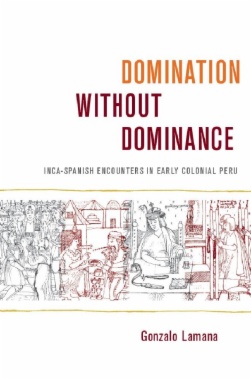Offering an alternative narrative of the conquest of the Incas, Gonzalo Lamana both examines and shifts away from the colonial imprint that still permeates most accounts of the conquest. Lamana focuses on a key moment of transition: the years that bridged the first contact between Spanish conquistadores and Andean peoples in 1531 and the moment, around 1550, when a functioning colonial regime emerged. Using published accounts and array of archival sources, he focuses on questions of subalternization, meaning making, copying, and exotization, which proved crucial to both the Spaniards and the Incas. On the one hand, he re-inserts different epistemologies into the conquest narrative, making central to the plot often-dismissed, discrepant stories such as books that were expected to talk and year-long attacks that could only be launched under a full moon. On the other hand, he questions the dominant image of a clear distinction between Inca and Spaniard, showing instead that on the battlefield as much as in everyday arenas such as conversion, market exchanges, politics, and land tenure, the parties blurred into each other in repeated instances of mimicry.
Lamana’s redefinition of the order of things reveals that, contrary to the conquerors’ accounts, what the Spanairds achieved was a “domination without dominance.” This conclusion undermines common ideas of Spanish (and Western) superiority. It shows that casting order as a by-product of military action rests on a pervasive fallacy: the translation of military superiority into cultural superiority. In constant dialogue with critical thinking from different disciplines and traditions, Lamana illuminates how this new interpretation of the conquest of the Incas revises current understandings of Western colonialism and the emergence of still-current global configurations.

